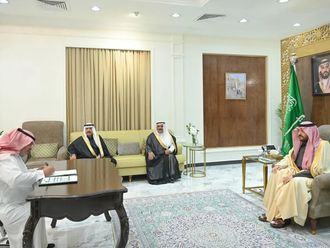
Cairo: A Saudi man has pardoned a convicted killer of his son minutes before execution in the Saudi port city of Jeddah.
The pardon was announced by the father of Ahmed Al Harbi who was killed around four years ago. The gesture was made by the father seeking God’s contentment and reward, Saudi media reported.
Also read
- Man arrested in Saudi Arabia for assaulting elderly woman
- Saudi Arabia launches comprehensive insurance coverage for new domestic workers
- Saudi Arabia opens registration for Hajj 2024, welcoming foreign pilgrims worldwide
- Turkey offers visa-free entry for UAE, Saudi and citizens of 4 other countries to boost tourism
The case dates back to 2019 when a mass brawl erupted, leaving Ahmed dead and others injured.
Later, Metrik Al Qahtani, a Saudi man, was found guilty of the murder and sentenced to death. He was to be executed in retribution in line with a final court ruling.
The case resurfaced last month as the inmate’s family pleaded for clemency.
Prior to carrying out the execution this week, the victim’s father declared pardoning the killer, a gesture that earned him praise.
“May Allah bless you, Ahmed’s father, and reward him with Paradise,” commented Saud Al Qahtani, a Saudi online celebrity.
“What you did is for Allah Almighty. We pray to Allah, many will follow your example,” Al Qahtani added.
In a similar gesture, Saudi media in October reported that a citizen had pardoned a man convicted of murdering his son prior to his execution.
Mutair Al Atawy’s decision was announced just prior to the execution of the convict at a designated site in Tabuk in northern Saudi Arabia, after a final death ruling had been issued against the killer.
Al Atawy had earlier rebuffed repeated offers for pardon.
Forgiveness and pardon is a major recommended virtue in Islam. In the Holy Quran, Islam’s holy text, God urges Muslims to show forgiveness and graciousness towards others, including non-Muslims.
In the same vein, the Prophet Mohammed (Peace Be Upon Him) underlined forgiveness, pointing out that the act elevates the forgiver’s status and reward.










